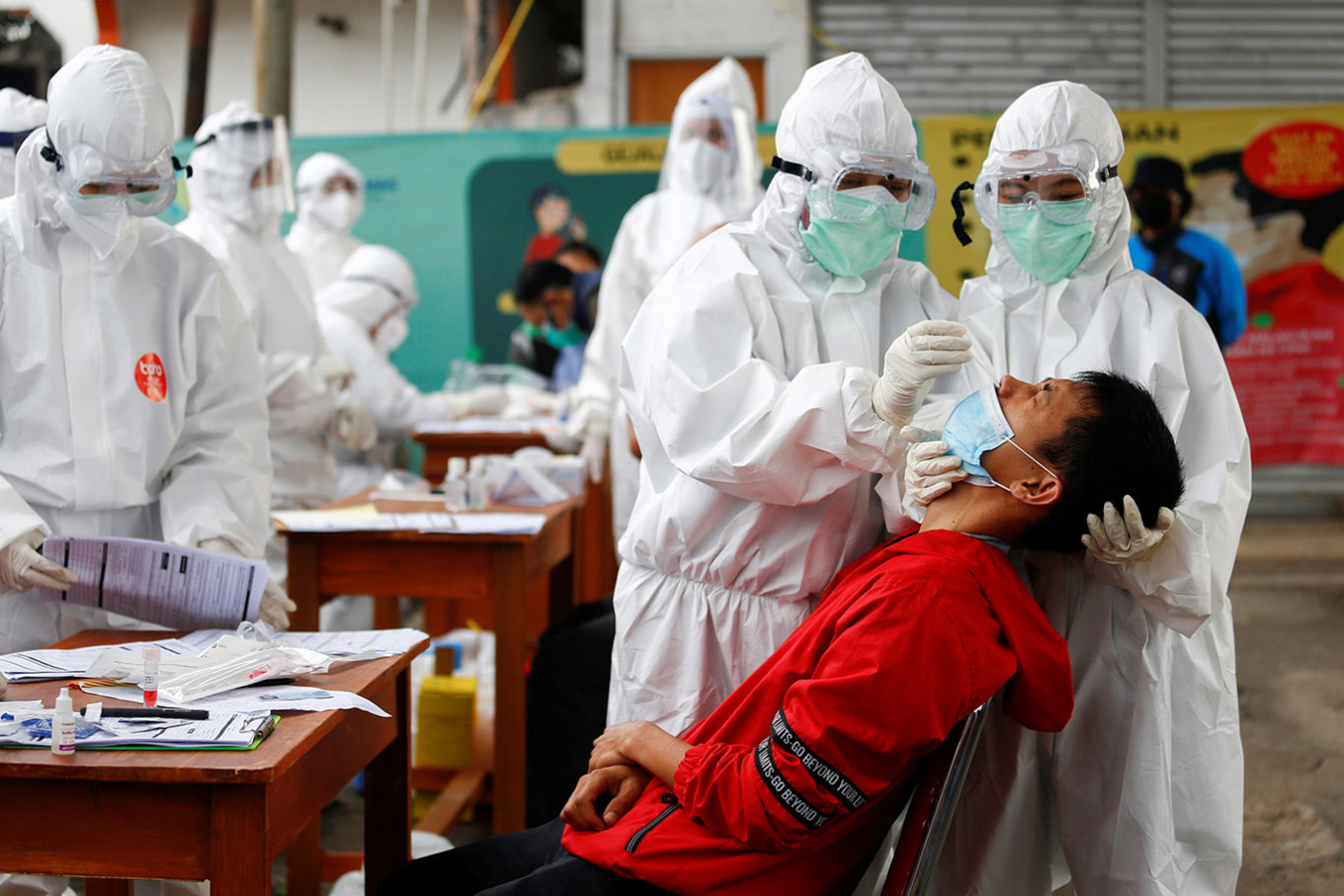Government COVID-19 policies disappoint public: Poll
Change Size

T
span id="docs-internal-guid-60fcfae3-7fff-7c56-7c2a-03f204a3976a">The government is under scrutiny for failing to meet public expectations in its response to the COVID-19 outbreak. Politicians and members of the public have called the policies inconsistent and disappointing.
A public opinion survey conducted by Jakarta-based pollster Indo Barometer between May 12 and 18 polled 400 respondents in seven provinces in Indonesia, including Jakarta, East Java and West Java – the three provinces hit hardest by the epidemic at the time of the survey.
About 54 percent of the respondents said they were dissatisfied with the central government’s COVID-19 policies, mainly because of inconsistencies in rules, sluggish distribution of social aid, inaccurate social aid recipient data and late action to mitigate the outbreak.
About 46 percent of the respondents said, in the open-ended questions, that they were satisfied with the government’s response to the outbreak, believing that it had acted fast in handling the virus and had managed to contain the virus through the implementation of large-scale social restrictions (PSBB).
“Two major problems – social assistance distribution and inconsistent policies – must be resolved,” Indo Barometer executive director M. Qodari said in a statement on Tuesday.
“I think it is best to say that President Joko ‘Jokowi’ Widodo needs to change his policy in handling the epidemic to achieve a higher public satisfaction rate.”
The government has issued a variety of policies since the first two COVID-19 cases were recorded in early March, including authorizing some regional administrations to impose PSBB individually and authorizing 405.1 trillion (US$ 27.06 billion) in extra spending to cushion the virus’ impact on the economy.
The government is now gearing up to gradually reopen the economy under health protocols to establish a so-called “new normal”, even as confirmed COVID-19 cases continue to rise, leading many to question the decision.
The Prosperous Justice Party (PKS), in opposition to Jokowi’s government, has said it is no surprise that the government was inconsistent in handling the epidemic given that it had underestimated the impact of COVID-19 from the outset, instead of focusing on preventing the virus from reaching the country.
“Every policy was decided in an instant,” PKS spokesman Ahmad Fathul Bari said on Wednesday. “The lack of public appreciation toward the government’s COVID-19 policies has arisen simply because the government has failed to prepare them thoroughly.”
Critics had previously criticized the government for having a lower rate of polymerase chain reaction (PCR) testing than other Southeast Asian countries.
Suyoto, a politician from the pro-government NasDem Party, said the government had no experience in handling any widespread epidemic before COVID-19, so it was understandable that its policies were “far from perfect”.
Suyoto, who heads the party’s public policy department, said the government needed to give the public better explanations of the policies and the scientific arguments behind them.
He cited the example of when Jokowi called on the public to make peace with the epidemic and live in the so-called “new normal” without giving any scientific arguments to support his appeal.
Health Ministry expert staff member M. Subuh said the public’s trust in the government’s COVID-19 policies would eventually improve once they saw the overall positive impact of PSBB.
He said he believed the policy had been effective in containing the disease because many local leaders had said it had helped flatten the infection curve in their respective regions.
Presidential spokesman Fadjroel Rachman did not immediately respond to a request for comment.
As of Wednesday, PSBB remained in place in four provinces and 23 cities and regencies, but cities such as Palangkaraya in Central Kalimantan, Tegal in Central Java and Makassar in South Sulawesi had decided not to extend the restrictions.









